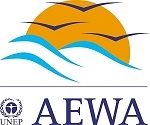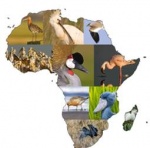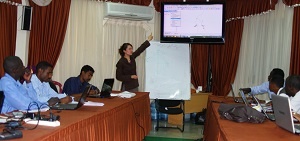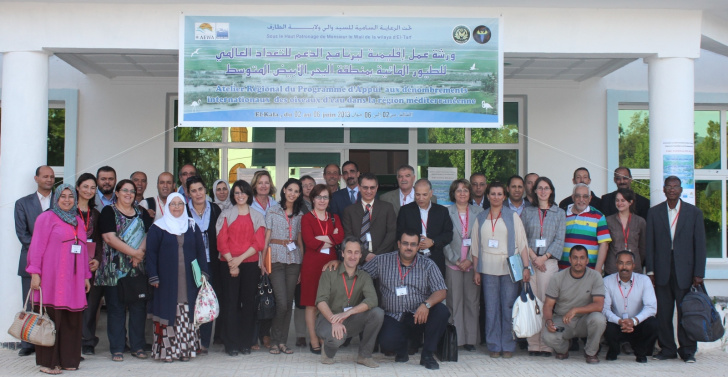The African Initiative and its Technical Support UnitSub-regional meetings and launch of the Action Plan for AfricaThe support program to waterbird monitoring and its objectives

The Agreement on the Conservation of African-Eurasian Migratory Waterbirds (AEWA) is an intergovernmental treaty for the protection of 255 species of migratory waterbirds and their habitats in Africa, Europe, the Middle East, Central Asia, Greenland and the Canadian Archipelago. Drafted within the framework of the Convention on the Conservation of Migratory Species of Wild Animals (CMS) and administered by the United Nations Environment Programme (UNEP), the AEWA brings together countries and a large part of the international conservation community, in an effort to establish coordinated monitoring and management of migratory waterbirds throughout their African and Eurasian migratory ranges. In force since 1999 (more than 24 years), this agreement includes 85 Contracting Parties: 46 from Eurasia and 39 from Africa.
The African Initiative and its Technical Support Unit🠉

The entire African continent is part of the area covered by this agreement. Luckily, the number of African countries to become contracting parties in the AEWA has continued to increase over the years, but in 2012 more than half of the countries had not yet ratified the AEWA, and even in the States that had, the means were often inadequate for applying it effectively. That year, during the 5th Meeting of the Parties (MOP5) in La Rochelle (France), the AEWA Contracting Parties adopted a resolution for more effectively applying the African Initiative, and created a Technical Support Unit (TSU) for it, assisted by France.
Within the framework of this resolution, the Water and Biodiversity Directorate of the previously called French Ministry of Ecology, Sustainable Development, and Energy (MEDDE, currently MTect) formally invited the Tour du Valat to host and co-facilitate this TSU in conjunction with the ex French National Hunting and Wildlife Agency (ex-ONCFS, currently French Biodiversity Agency - OFB). This new programme co-developed by the Tour du Valat included the North African component of its Support Programme for International Waterbird Census (IWC) and for the conservation of wetlands in the Mediterranean basin (more details at the end of the page - The support program to waterbird monitoring and its objectives).
A memorandum of understanding was signed in July 2013 by the Water and Biodiversity Directorate (DEB) of the ex-MEDDE, and the National Parks Administration of the Senegalese Ministry of the Environment and Nature Protection. It entailed the appointment of a technical coordinator in Africa in the TSU, which now included four technical partners (DPN, DEB, ONCFS and Tour du Valat) from two countries (Senegal and France).
The TSU’s principal objective was to help the African Parties implement the AEWA action plan for Africa from that moment until the 6th Meeting of Parties (MOP6) in 2015. This assistance included:
- Identifying, creating, and promoting synergies between existing waterbird monitoring programmes (IWCs and other kinds of monitoring);
- Participating directly in field surveys with African partners;
- Improving the inventories of wetlands of national and international importance;
- Helping to create and distribute concrete examples of training materials;
- Developing tools for communicating between local, national, and international stakeholders (creating new tools and translating already existing ones);
- Organising training sessions for identifying and counting waterbirds, and processing these data;
- Capitalizing on monitoring data to improve the conservation of sites and species.

GIS training in Sudan © ONCFS
Sub-regional meetings and launch of the Action Plan for Africa🠉
The AEWA Secretariat and the TSU organised in 2013 three sub-regional meetings (Northern Africa, Central and Western Africa, and Eastern and Southern Africa) in order to define the priority actions in each sub-region, and to elect a sub-regional representative from among the AEWA National Focal Points. The role of these Sub-regional Focal Points was to facilitate the implementation of the plan of action for Africa in their sub-region, with support from National Focal points, the AEWA Secretariat, and the TSU.
The meeting for Northern Africa was held in El Kala (Algeria) in June 2013 (more details at this link). It was organised by the Algerian Directorate of Forests in partnership with the El Kala National Park, the TSU, and the AEWA Secretariat, with support from the ex-MEDDE and the MAVA Foundation. Each North African country presented its priorities and a synopsis was made of each objective. Objective 3 in the AEWA Plan of Action for Africa, which is focused on species monitoring, proved to be the priority in this sub-region, and the following priority actions were set to achieve this objective:
- 1) Building capacity in the national networks (training for trainers and observers, observation equipment, etc.);
- 2) Strengthening the regional coordination in order to set up databases, and analyse and publish data;
- 3) Improving the coverage of wetlands by observers and waterbird monitoring.
Dr Ammar Boumezbeur, the AEWA’s National Focal Point in Algeria and a member of the AEWA Standing Committee, was elected Sub-regional Focal Point for Northern Africa.

Participants of the "North Africa" sub-regional workshop © DGF
The meeting for Eastern and Southern Africa was held in Cape Town, South Africa, on the 27 and 28 October 2013. It was attended by representatives from 11 countries. The working groups gathered there designated the same priority objectives for the two regions: setting up management plans for the key sites, and improving the quality and quantity of data on waterbird populations.
The meeting for Western and Central Africa took place in Dakar, Senegal from 11 to 15 December 2013, and was organised by the Senegalese National Parks Administration and the TSU, with support from the French Ministry of Ecology and the AEWA Secretariat. The priorities established for Western Africa were to identify key sites for migratory waterbirds, set up conservation awareness-raising programmes, and improve the quality and quantity of IWC data for Africa. For Central Africa, the priority actions defined were to improve the quality and quantity of IWC data for Africa, set up management plans on key sites, and adopt and implement legislation to protect priority species.
The establishment of priorities at these three meetings was meant to enable regional projects to be conceived for implementing the AEWA Plan of Action for Africa.
The support program to waterbird monitoring and its objectives🠉
A support programme to waterbird monitoring and wetland conservation in the Mediterranean basin was initiated in 2012 by the Tour du Valat research center, the ex French National Hunting and Wildlife Agency (ex-ONCFS, currently French Biodiversity Agency - OFB) and Wetlands International, with the support of the French Ministry of Ecology, Sustainable Development and Energy (currently called Ministère de la Transition écologique et de la Cohésion des territoires) and the MAVA Foundation.
This programme is at the root of the Mediterranean Waterbirds Network (MWN)!
Just as the MWN does today, it aimed to improve the spatial coverage and the overall quality of the International Waterbird Census (IWC) and more globally of all waterbird monitoring in the Mediterranean region by:
- creating synergies between existing national and international programmes;
- developing tools for exchange between local, national and international actors;
- strengthening national networks of observers;
- completing inventories of wetlands of national and international importance.
For more details on this support programme, download the first report of the results of the programme (only available in French).




.png)
